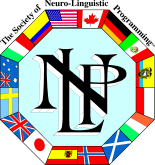
Always we are starting to tell you what you can expect in this article. And this time we are writing about NLP Universal Quantifiers. Have some fun to detect what they are and what you are actually saying with Universal Quantifiers. Besides that, as always and in general, some examples and an exercise. Have a great day and joyful reading!
What are in NLP Universal Quantifiers?
Generalizations that preclude exceptions or alternative choices are in NLP Universal Quantifiers. NLP suggests that these are virtually never an accurate representation of the objective state of things. There are almost always exceptions to any rules. You use Universal quantifiers to eliminate objections and therefore, perhaps, objectivity.
What are you actually saying using NLP Universal Quantifiers?
When using Universal Quantifiers, you are saying, “there are no exceptions and therefore there are no choices.” Sometimes this can be useful. If you believe you will always find a way if you persevere for instance. When you hear these words, the person or yourself is showing you their beliefs. Pay attention when you use them, particularly if it is to do with a problem you’ve had for a while.
When you are asking questions to explore this pattern in more depth, be very careful about knowing whether you are gathering information or challenging their models. Because the line between information gathering and challenging perceptions here is very thin. The way to gather more information is to ask for exceptions to the Universal Quantifier. The way to challenge the person’s model is to ask for or point out to the possible exceptions to the Universal Quantifier. The difference is best managed through the use of your vocal tonality.
Some Examples of NLP Universal Quantifiers
As a little side step on vocal tonality, remember that the tone up at the end of a sentence states a question, no inflection in the sentence means a statement and a downward inflection means a command. Playing around with this will help you making a shift and is useful challenging the Universal Quantifier specifically and in use of any language in general. For example, someone says to you:
“I never eat rice on Tuesdays.”
When you want to gather more information, you might ask
“Has there ever been a time when you did?”, or, “What purpose does that server?”, or, “What would that lead to if you did?”
When you want to challenge their model, you can ask “Never? What would happen if you never ate it on Tuesdays, either?”. Again, the difference here is best managed by having an open tonality in your questions. Instead of a tonality, which suggests their Universal Quantifier is a little silly or inaccurate. To challenge a universal quantifier is easy. Simply take it and turn it around as a question, either by itself, or with a question framed around it. Or, ask the person to seek out his or her own counter-example.
And of course an Exercise with NLP Universal Quantifiers
As an exercise today, write down 30 NLP Universal Quantifiers and challenge them in different ways. And while you listen to conversations around you, start noticing that everyone makes them.
In NLP Universal Quantifiers are part of the higher chunk called Generalizations which is part of the Meta Model.
Last but not Least
Remember, to increase your efficiency as a NLP Practitioner, know your positive intention for the message you want to convey, build rapport and pay attention on what and how you use language. Leave people and business in a better place that where you found them, every day!
Mind Tools provides NLP Practitioner and NLP Master Practitioner Trainings and Certifications. We educate you according to the renowned, latest and highest standards set by the Society of NLP. We will train you thoroughly in all the corners of Neuro-Linguistic Programming and some extras we learned from Dr. Richard Bandler directly.
- Mind Tools Co., Ltd.
- NLP Universal Quantifiers







